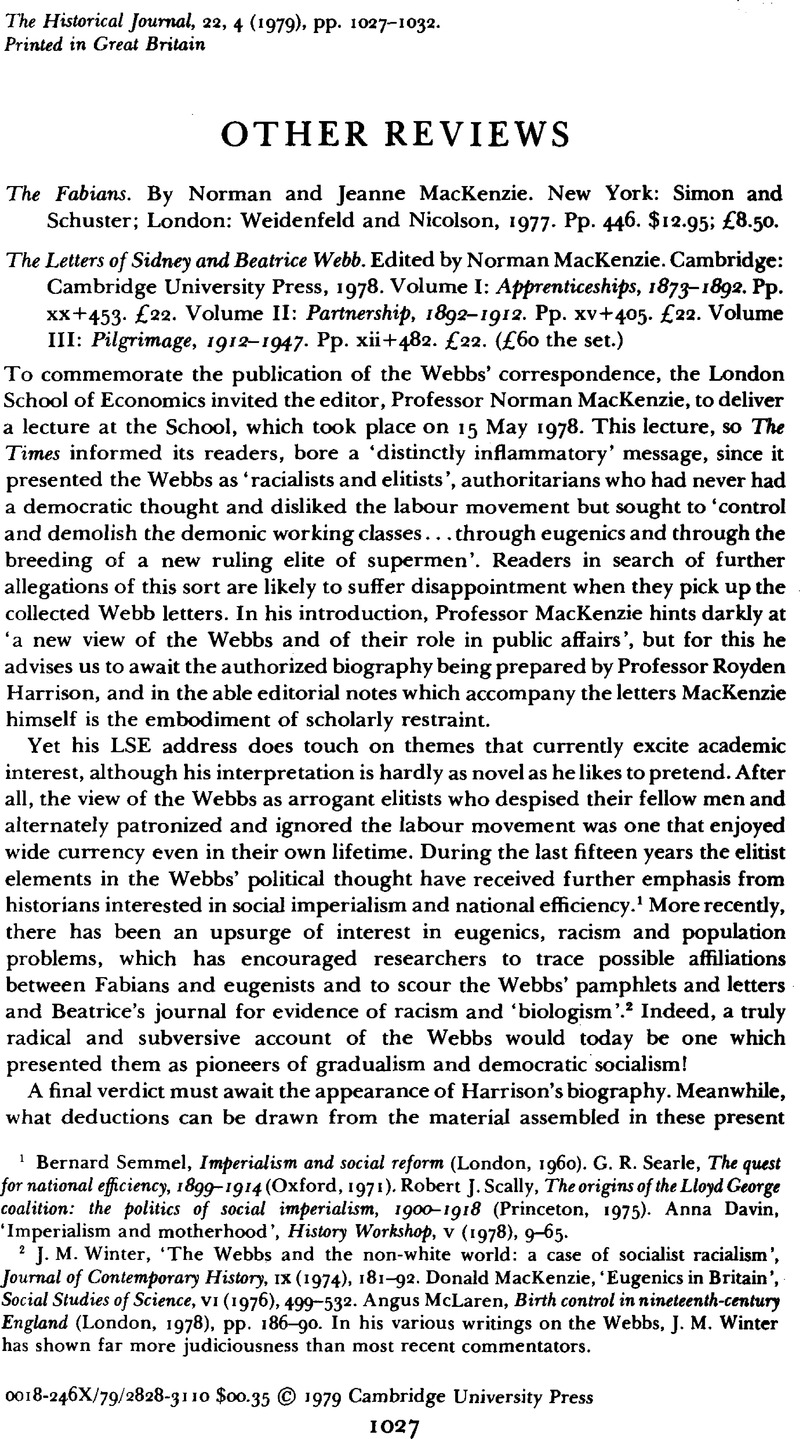No CrossRef data available.
Article contents
The Fabians. By Norman and Jeanne MacKenzie. New York: Simon and Schuster; London: Weidenfeld and Nicolson, 1977. pp. 446. $12.95; £8.50. - The Letters of Sidney and Beatrice Webb. Edited by Norman MacKenzie. Cambridge: Cambridge University Press, 1978. Volume I: Apprenticeships, 1873–1892. pp. XX + 453. £22. Volume II: Partnership, 1892–1912. pp. XV + 405. £22. Volume III: Pilgrimage, 1912–1947. pp. xii + 482. £22. (£60 the set.)
Published online by Cambridge University Press: 11 February 2009
Abstract

- Type
- Other Reviews
- Information
- Copyright
- Copyright © Cambridge University Press 1979
References
1 Semmel, Bernard, Imperialism and social reform (London, 1960)Google Scholar. Searle, G. R., The quest for national efficiency, 1899–1914 (Oxford, 1971)Google Scholar. Scally, Robert J., The origins of the Lloyd George coalition: the politics of social imperialism, 1900–1918 (Princeton, 1975)Google Scholar. Davin, Anna, ‘Imperialism and motherhood’, History Workshop, v (1978), 9–65CrossRefGoogle Scholar.
2 Winter, J. M., ‘The Webbs and the non-white world: a case of socialist racialism’, Journal of Contemporary History, IX (1974), 181–92CrossRefGoogle Scholar. MacKenzie, Donald, ‘Eugenics in Britain’, Social Studies of Science, VI (1976), 499–532CrossRefGoogle Scholar. McLaren, Angus, Birth control in nineteenth-century England (London, 1978), pp. 186–90Google Scholar. In his various writings on the Webbs, J. M. Winter has shown far more judiciousness than most recent commentators.
3 Searle, G. R., Eugenics and politics in Britain, 1900–1914 (Leyden, 1976), pp. 86–9CrossRefGoogle Scholar. Searle, G. R., ‘Eugenics and class’, in ‘The roots of socio-biology’, papers delivered to the Conference of the Past and Present Society, organized in conjunction with the British Society for the History of Science, 29 09 1978Google Scholar.
4 Hobsbawm, E. J., ‘The Fabians reconsidered’ in Labouring men (London, 1964), pp. 250–71Google Scholar.
5 Of course, it was quite possible, as Sydney Olivier demonstrated, to be both a ‘bohemian’ and a ‘bureaucrat’; these are not mutually exclusive categories.


